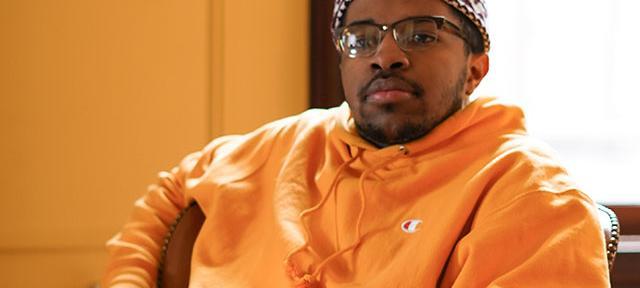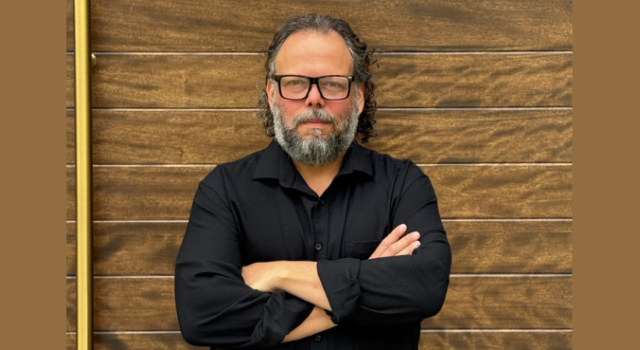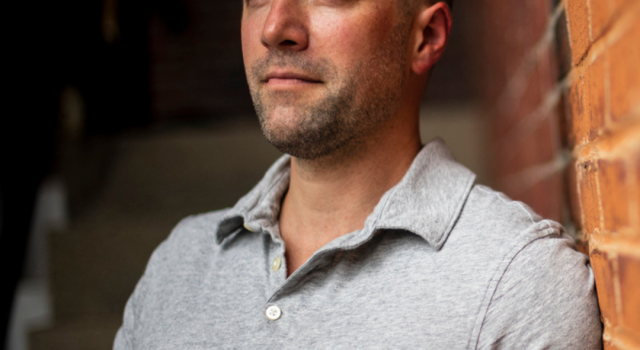Alum Ché Williams Uses Filmmaking to Tell Stories From the Inside Looking Out

Since graduating from Hampshire College last May, Ché Williams 16F has been working as a production assistant for a docuseries on the Tulsa Race Massacre that will air on the History Channel later this year.
Since graduating from Hampshire College last May, Ché Williams 16F has been working as a production assistant for a docuseries on the Tulsa Race Massacre that will air on the History Channel later this year. We sat down (remotely) to talk with Williams about his Division III film project on the commodification of youth basketball, why who we film and how we film matters, and what inspired him to choose Hampshire.
What first brought you to Hampshire?
My dad went to Amherst College, and he knew I was really into film. Both he and my guidance counselor thought Hampshire would be a great fit. I also did a film program at Hampshire the summer before my senior year of high school that I loved. During the program, we met Doug Trumbull, who had done special photographic effects for 2001: A Space Odyssey and that was a real game changer for me.
What was the focus of your Division III project?
While at Hampshire, I focused on Africana studies and film. My Div III project looked at exploitation in amateur basketball, specifically at high school basketball in the Northeast as well as the commodification and codification of the dreams of mostly Black and Brown student-athletes in the tri-state area. I'm from New Jersey, and I went to school in Pennsylvania, so I knew the scene really well already. In that area on a Friday night, there's nothing bigger than a high school basketball game.
I filmed with a vérité [candid realism] style. I also thought about the work that had been done on this topic before, and it was either from older or current NBA players for a mainstream audience, but there hadn't been a film by a young person who was on the inside.
To make the film, I spent a huge amount of time with the players. Over the summer, I spent three or four days a week, five hours a day, in the gym with them. I’d spend the night at the coach’s house, go to tournaments, and even meet the players in parks in New York. The project became more for the boys than it was for the spectators. And that was important to me.
Why was it important to you to make the film for them, as opposed to the spectator?
The core member of my Div III committee was video and critical studies professor Kara Lynch. Kara talked a lot about the white gaze and subversion of the white gaze, so I think, for me, it was about that and also all the kinds of gazes people bring. Film and video professor Hope Tucker took us to see Hale County This Morning, This Evening by RaMell Ross. After the film screening, RaMell talked about how we’re taught to point the camera at what’s important as if we are outside looking in, but in Hale County he wanted the camera to be inside looking out. He said in that way the people in his film were elevating the camera. And that’s what I tried to do in my work as well. The players I followed were elevating the camera, not the other way around.
What projects are you working on now?
I am working for a company called Blackfin, which is part of Entertainment One. They are coproducing a docuseries about the Tulsa Race Massacre in 1921. NBA player Russell Westbrook is the executive producer and the co-directors are Stanley Nelson and Marco Williams. I’ve been working on that project as a production assistant, and it’s been a great experience so far.
When this project is completed, do you have any ideas for future films you want to make?
I don’t want to give it all away yet! But I would love to work on a narrative film. I like narrative works because they are such a challenge with so many moving pieces. If possible, I’d love to get a crew together and make a short film this summer.



